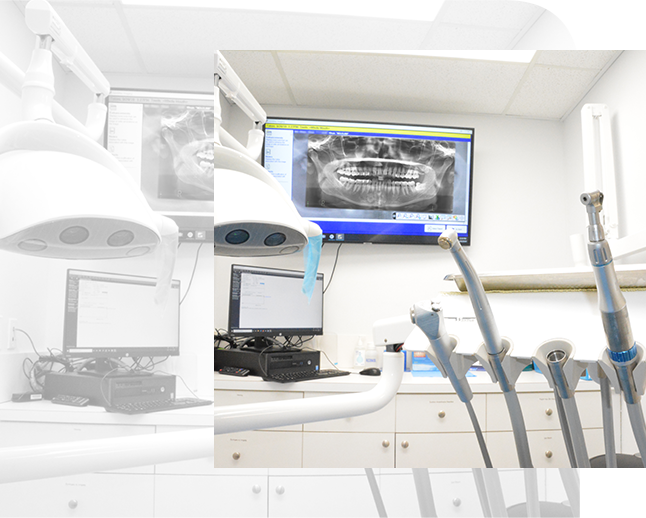
EXAMS
During your exam, your dentist will thoroughly examine your teeth and gums for signs of tooth decay, gum disease and other health problems. Your dentist may also want to take X-rays to see what is happening beneath the surface of your teeth and gums. Whether these X-rays are traditional or digital, the images provided will help your dentist discover dental issues not visible to the naked eye.
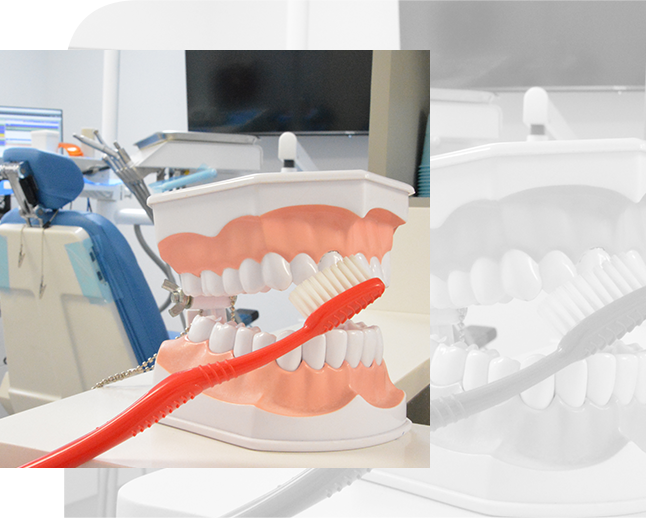
CLEANINGS
A healthy smile indicates proper oral hygiene and maintenance. Dental cleanings provide routine dental descaling, irrigation, fluoride treatments and instructions for ongoing oral hygiene and care. Fortune Smiles will offer top personalized tips for a healthier mouth that you can care for at home. Plaque will be removed to prevent cavities, gingivitis and periodontal disease. This level of care cannot be achieved by brushing and flossing alone. Our dental hygienists will remove deposits of tartar that have hardened over time. Our irrigation disinfecting solution flushes away bacteria that the gums have been harboring. At the end of your dental cleaning, the fluoride treatment will enhance the strength of your teeth and reduce any sensitivity that has resulted from tooth whitening. Regular cleanings are a must to prevent tartar build up, unpleasant breath and expensive cavities. Please help us achieve your smile goals by scheduling your next cleaning today.

FILLINGS
Traditional dental restoratives, or fillings, are most often made of silver amalgam. The strength and durability of this traditional dental material makes it useful for situations where restored teeth must withstand extreme forces that result from chewing, often in the back of the mouth. Newer dental fillings include ceramic and plastic compounds that mimic the appearance of natural teeth. These compounds, often called composite resins, are usually used on the front teeth, where a natural appearance is important, but they can also be used on the back teeth depending on the location and extent of the tooth decay.
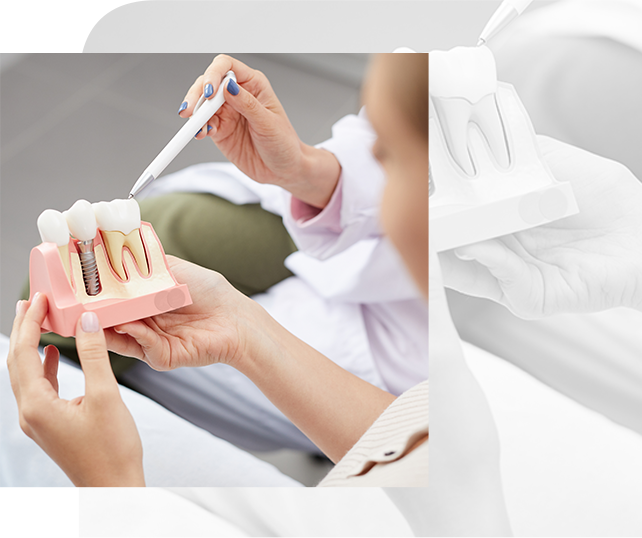
CROWNS
A crown is a cosmetic restoration used to strengthen a tooth or improve its shape. Crowns are most often used for teeth that are broken, worn, or partially destroyed by tooth decay. Crowns are “cemented” onto an existing tooth and fully cover the portion of your tooth above the gum line. In effect, the crown becomes your tooth’s new outer surface. Crowns can be made of porcelain, metal, or both. Porcelain crowns are most often preferred because they mimic the translucency of natural teeth and are very strong.

BRIDGE
A bridge may be used to replace missing teeth, help maintain the shape of your face, and alleviate stress on your bite. A bridge replaces missing teeth with artificial teeth, looks great, and literally bridges the gap where one or more teeth may have been. Your bridge can be made from gold, alloys, porcelain, or a combination of these materials, and is bonded onto surrounding teeth for support.
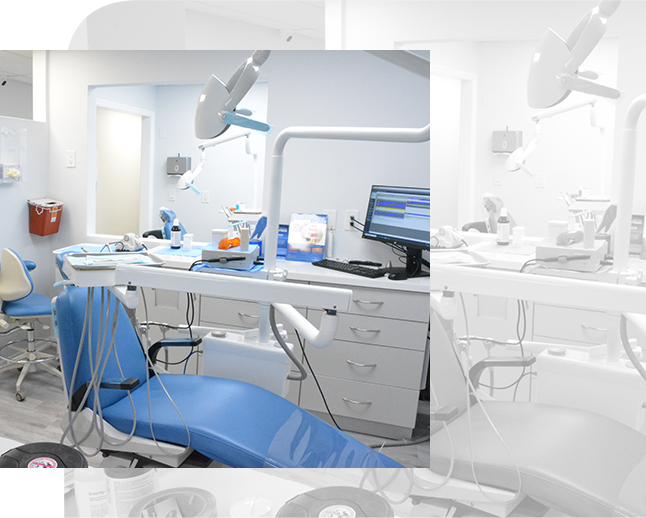
SURGICAL AND SIMPLE EXTRACTIONS
Oral examinations and X-rays evaluate the position of problematic teeth to gauge present or potential problems resulting from issues such as tooth decay, broken teeth, severe decay, retention of a baby tooth or the need for more space in the mouth for future procedures. Wisdom teeth can be extracted if there is not enough room in the mouth or the root structure is severely damaged. Early detection will result in superior outcomes for our patients. Extraction can prevent localized gum infections and recurrent pain and swelling, which may affect chewing and swallowing. Impacted teeth can cause non-infectious diseases and cysts. These cysts can slowly expand, destroying the jawbone and adjacent teeth. Tumors can even form with the delayed removal of impacted teeth.
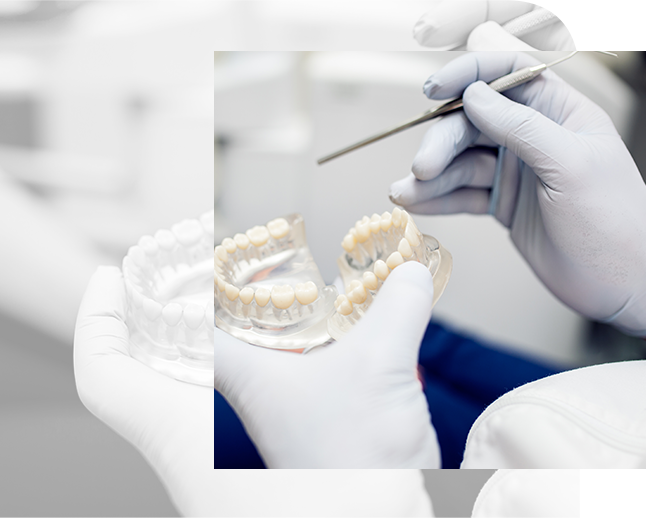
COMPLETE AND PARTIAL DENTURES
False teeth are prosthetic devices that have been crafted to replace missing teeth that have been lost to gum disease, tooth decay or injury. Known as dentures, these devices support the surrounding soft and hard oral cavity tissues. It is essential to replace missing teeth to prevent a shift in remaining teeth, an inability to bite and chew properly and a sagging, aged facial appearance. Most dentures are removable in a complete or partial capacity. Flexible partials are largely considered comfortable and conventionally appealing. These restorations can be created using the latest innovations in digital technology. Partials can be made with or without visible metal clasps. Additionally, partials involve non-invasive procedures and largely serve as invisible tooth replacements. In contrast, complete dentures are the preference for patients who are missing all of their teeth in a single arch – maxillary or mandibular – or both. These types of dentures replace all teeth in the upper or lower jaw.
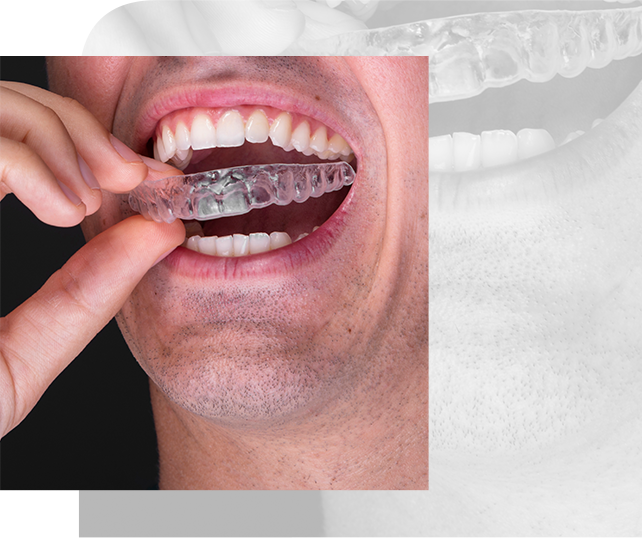
NIGHT GUARDS
Teeth grinding, or bruxism, can result in the wearing down of teeth by up to 80 percent compared to normal daily wear, as well as temperature sensitivity, cracked teeth, radiating pain and lost teeth. You may be waking up with a stiff and tired jaw. A night guard is a clear, removable device that can be fitted over the front of your teeth or may provide fuller coverage. This dental restoration is recommended for patients who have bridges, implants and dentures. If properly fitted, night guards are easy to remove, insert and sleep in. Fortune Smiles will take impressions of your teeth to perfectly match your needs and your teeth.

